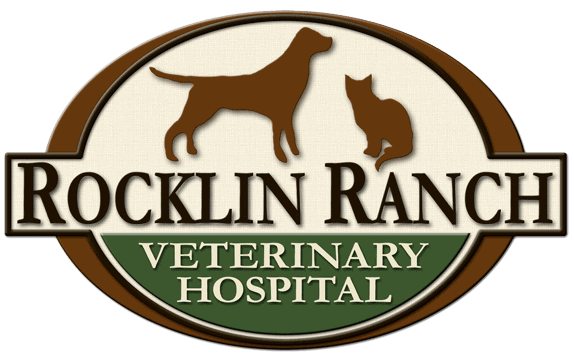Rocklin Ranch Veterinary Hospital’s Blog
Unlock Amazing Pet Oral Health with These Simple Steps
 A healthy mouth is truly a healthy body for both pets and people. We (hopefully) brush our teeth every day and visit the dentist regularly for cleanings and checkups, but studies show that our pets aren’t getting the same treatment. According to the American Veterinary Dental College, most dogs and cats have some form of periodontal (gum) disease by the time they reach age three. Periodontal disease has been linked to a number of health challenges, including pain, tooth loss, and heart disease.
A healthy mouth is truly a healthy body for both pets and people. We (hopefully) brush our teeth every day and visit the dentist regularly for cleanings and checkups, but studies show that our pets aren’t getting the same treatment. According to the American Veterinary Dental College, most dogs and cats have some form of periodontal (gum) disease by the time they reach age three. Periodontal disease has been linked to a number of health challenges, including pain, tooth loss, and heart disease.
Preventing and treating gum disease is as crucial to your pet’s overall well-being as proper nutrition and exercise, and can even add years to their life. Your team at Rocklin Ranch Veterinary Hospital is committed to pet oral health, and we are here to help you get started on this important component of pet care.
What to Watch out For
Pets are wired to hide signs of pain or illness, making it easy to miss the symptoms of poor oral health. Give us a call right away if you notice any of these signs of periodontal disease:
- Foul breath
- Red, swollen, or bleeding gums
- Loose, broken, or discolored teeth
- Difficulty chewing or refusal to eat
- Pawing at the mouth
- Excessive drooling
- Tooth loss
Improving Pet Oral Health
A dedicated home and professional care routine is essential when it comes to improving and enhancing pet oral health. Follow our tips to give your pet’s pearly whites the attention and care they deserve:
- Daily Brushing – Brushing your pet’s teeth every day is the single best way to keep your pet’s mouth in good shape. Use a pet friendly toothbrush and toothpaste (never use human toothpaste, as certain ingredients can be toxic to pets), and aim for a total of two minutes per day, brushing in a gentle, circular motion. Please don’t hesitate to ask your veterinarian for help if you are experiencing difficulties with pet tooth brushing.
- Home inspection – Once per week, lift your pet’s lips and take a look inside the mouth for any irregularities. Note the condition of the teeth, gums, and soft tissues. This will help you get to know your pet’s mouth better and will alert you to any signs of trouble early on.
- Proper diet – Providing your furry friend with the highest quality diet possible is key in proper pet oral health. Talk with your veterinarian about the right food for your pet and whether or not your pet could benefit from a prescription dental diet.
- Veterinary care – Most dental disease occurs below the gumline and isn’t visible without the use of X-rays. At your pet’s regular wellness exams, your veterinarian will let you know if your pet could benefit from a professional dental cleaning and exam.
- Dental products – Dental-specific chews or softened rawhides and the use of certain oral rinses can aid in keeping your pet’s teeth clean. Check the Veterinary Oral Health Council website for a list of products that are clinically shown to improve pet oral health.
By keeping up with your pet’s regular wellness exams and committing to good home care, there’s no reason why you can’t keep your pet’s mouth healthy for years to come. Please give us a call with your questions or to schedule an appointment for your pet.
